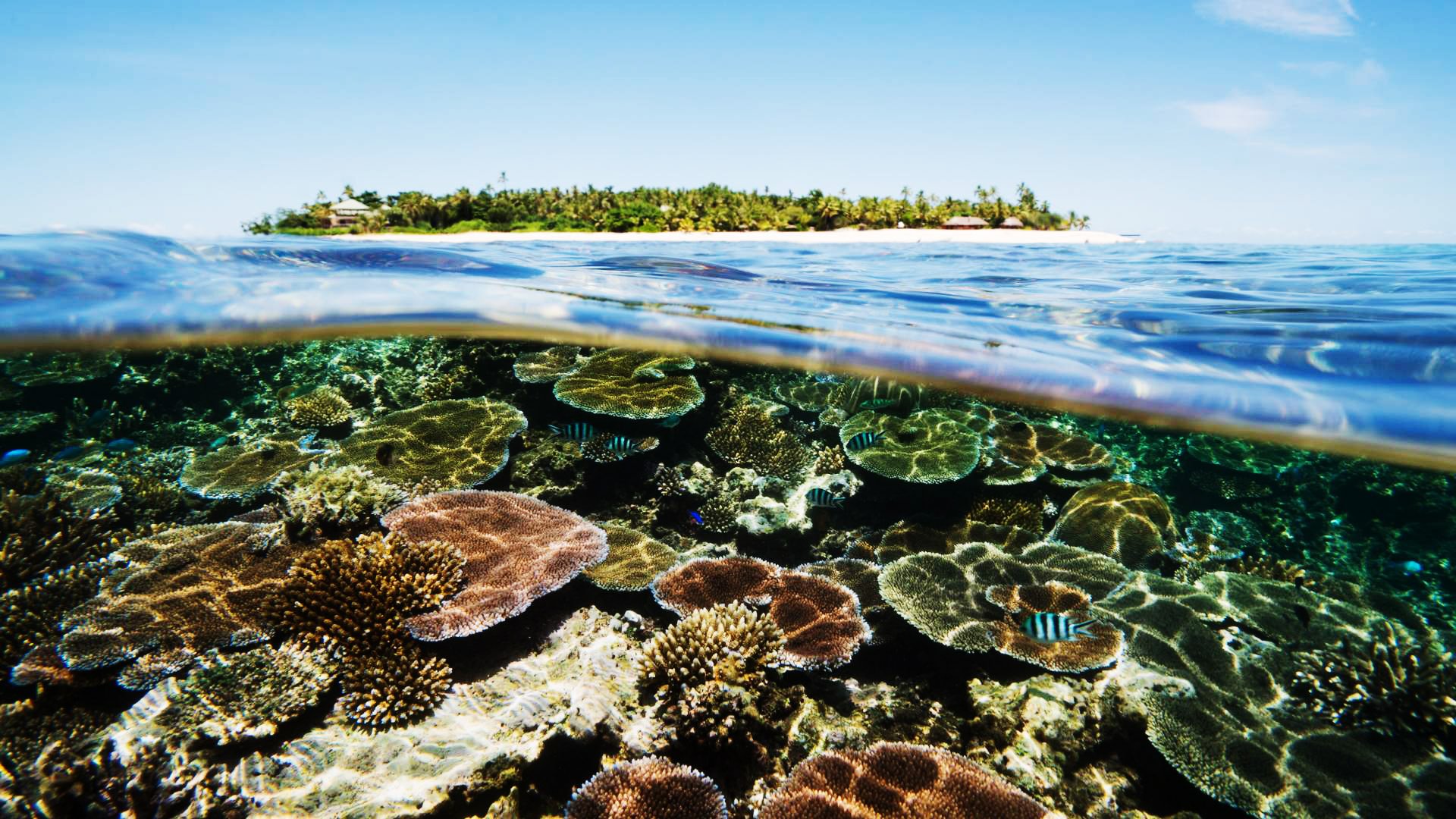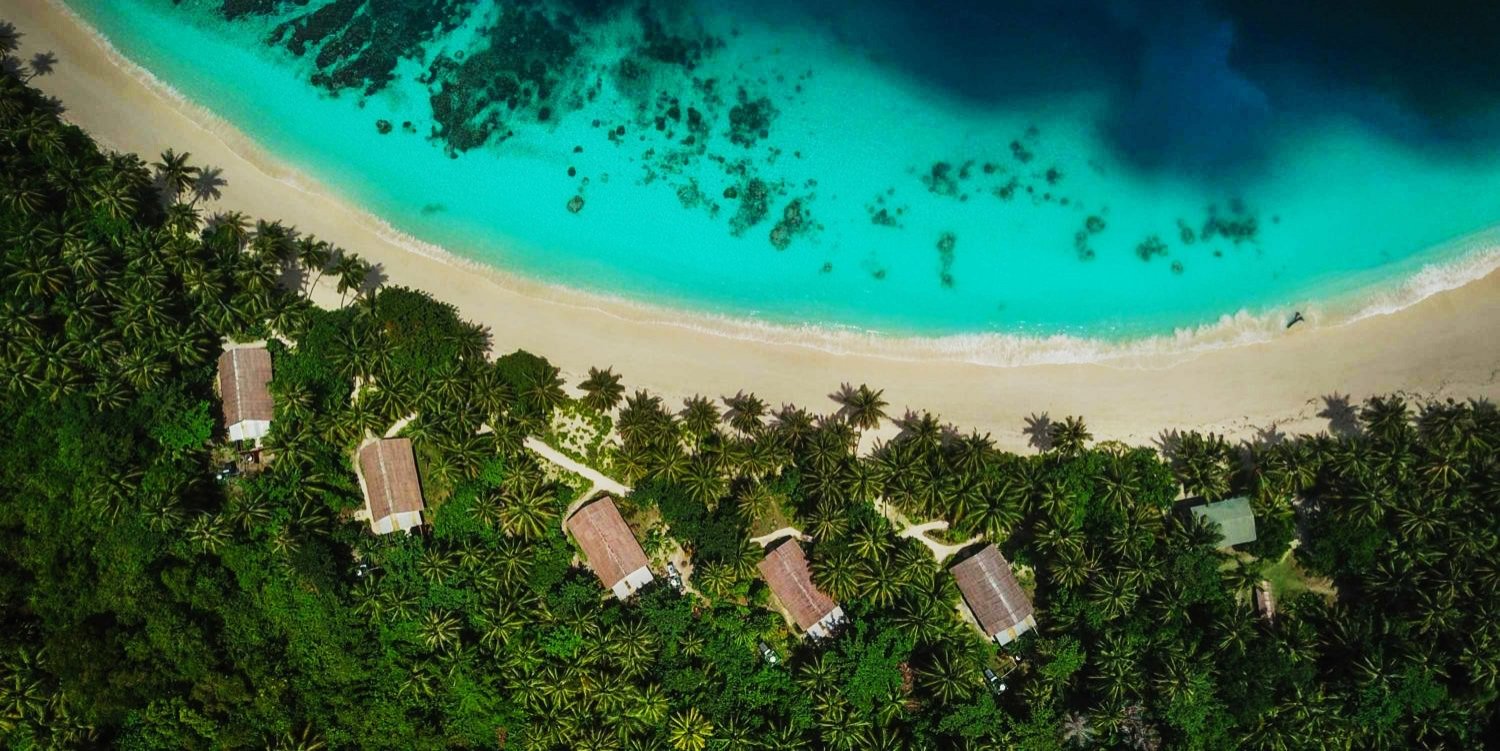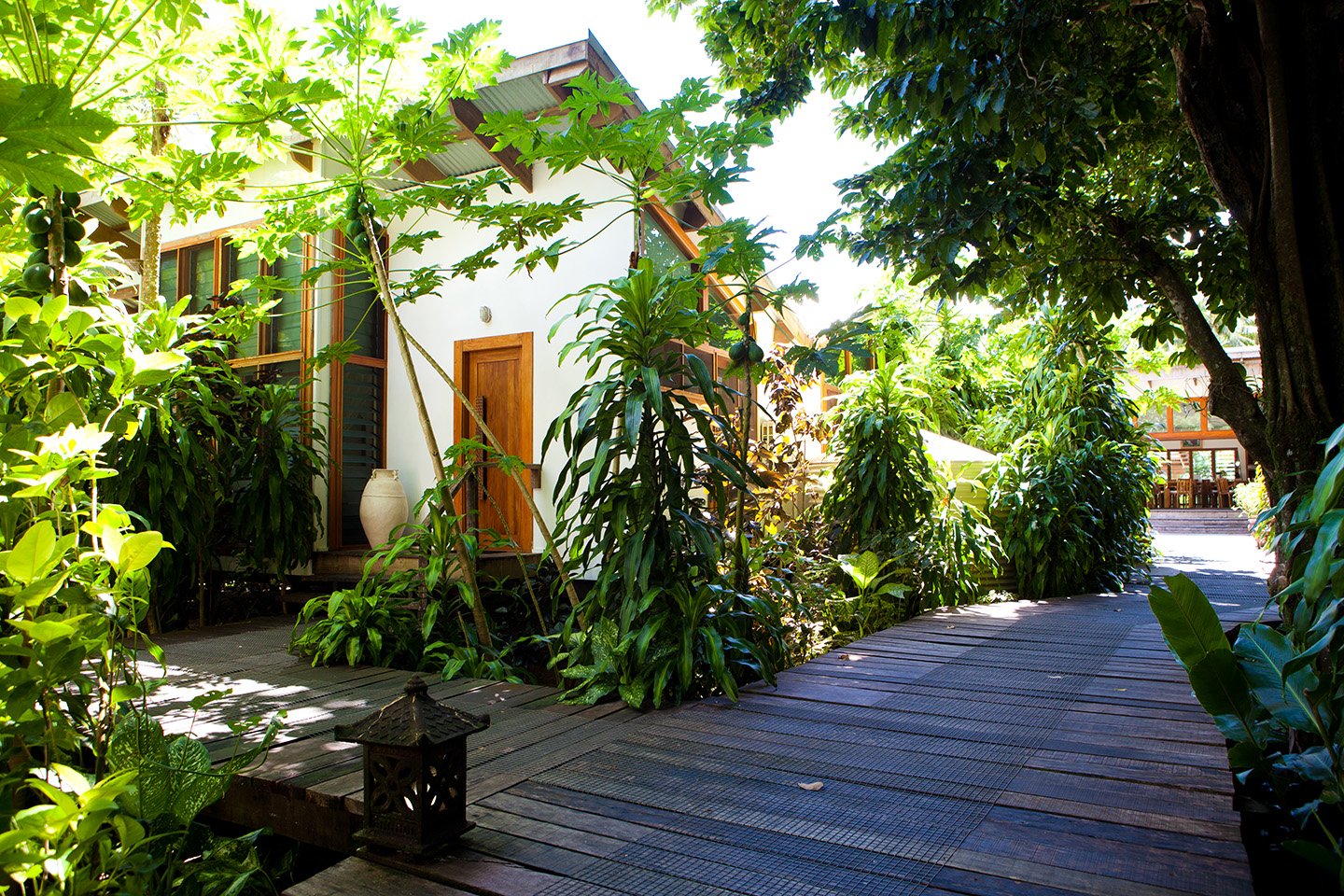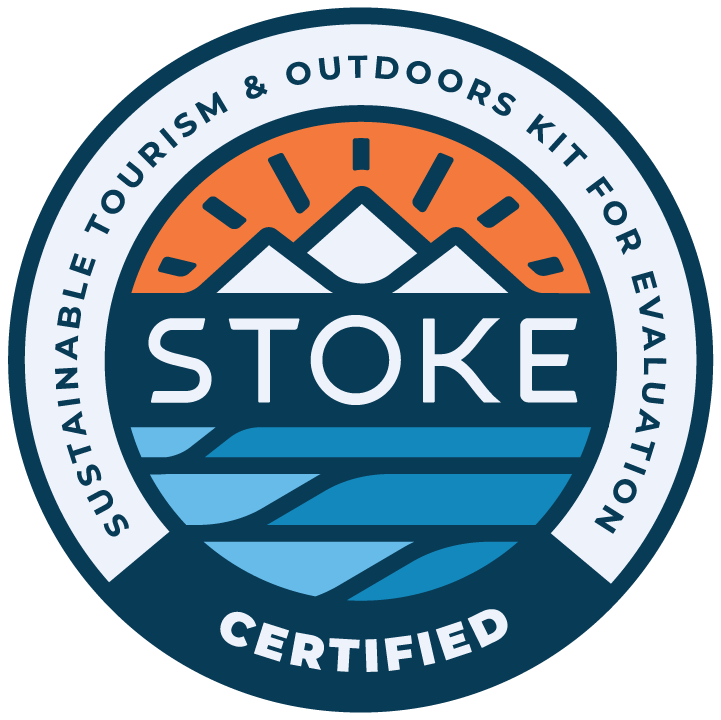This Is What All Surf Resorts Should Be Doing During COVID
With 80% of you willing to pay more for sustainability, getting STOKE Certified isn’t just good for the planet, it’s good for business.
When travel returns, it will look different than it did in 2019, as destinations use this vacation from vacationers to reconsider how they want to re-welcome visitors. Venice will limit the amount of tourists allowed into the city. Hawaii wants to focus on visitor quality rather than quantity. The European Commission is taking steps toward more sustainable transportation and lodging.
In line with those trends, early results from our 2020 reader survey suggest that more than 80 percent of you are willing to pay at least 10 percent more for sustainable lodging on your next surf trip. That’s huge. And it means that surf resorts that compete for your money — more fiercely than ever, post-COVID — would do well to up their sustainability game.
The good news? They have time to execute, while occupancy is low.
The better news? There’s a company that can help them level up.
“STOKE (a little on the nose, we admit) makes it easy for surf tourism operators—camps, resorts, schools, etc.—to assess, improve, and verify their sustainability initiatives,” said Carl Kish, CEO of STOKE. “Then, we help share their impact story with the surfing community.”
(That’s you.)

No anchors dropped here. Surprise, surprise — Tavarua has their shit together.
Tavarua Island Resort is STOKE Certified. So is WavePark Surf Resort in the Ments. Matanivusi Surf Resort, where we stayed during Fiji, Actually, also has the STOKE stamp of approval. STOKE (Sustainable Tourism & Outdoors Kit for Evaluation) hopes that their signature stamp — which holds the sun, mountains, and waves inside their logo — will become consumer recognized validation for a sustainable surf business.
Kish and Jess Ponting, founder of SDSU’s Center For Surf Research, created STOKE when Jess noticed “that the world of sustainable tourism was moving ahead and leaving surf tourism behind.” I spoke with them about STOKE and the future of surf travel, from their respective quarantine locations in San Diego.
STAB: What does STOKE do for surf destinations?
CARL KISH: Our online platform enables teams to benchmark themselves against 90 criteria affecting every aspect of their business in a simple Q&A format. Each question has a digital guidebook filled with resources and case studies from other surf destinations to provide context and walk them through the process.
Once a baseline is set, the operator uses the platform’s goal-setting features and automated impact reports to monitor progress towards certification and make informed decisions on where to progress.
After achieving their certification target and uploading evidence to the STOKE Platform, we connect them with a third-party evaluator from their region who does an on-site verification of the destination’s sustainability claims. If the business passes at one of the three levels of certification, then we create a public STOKE Certified web profile showcasing their best practices, impact scores, and areas for improvement that the team is working on for recertification. Surfers can look for the STOKE Certified logo on a destination’s marketing materials or visit our website before planning their next trip.
What are the top three reasons it’s important for a camp or resort to get STOKE Certified?
JESS PONTING:
-
Surf destinations are among the worlds most beautiful and fragile, and many are being loved to death. These places we love are being disproportionately impacted by climate change (e.g., sea-level rise, coral bleaching), so we must be part of the solution to protect these communities, cultures, and ecosystems. We know it’s tough running a surf tourism business — that’s why we’ve built the criteria and resources specific to your operations so that sustainability becomes cohesive with your business instead of another set on the head.
-
Surfers want these options. Research shows that there is a large, unmet demand for authentic sustainable surf tourism products and that surf tourists are willing to pay for it. Meet demand. Do good. Feel good.
-
Operating sustainably and having an online dashboard to manage your initiatives leads to operational efficiencies, reduced risk, water and energy savings, less pollution, more satisfied employees, closer economic ties with local suppliers, better relationships with local communities, and an unparalleled experience for your guests.

The WavePark Mentawai Resort is jungle oasis that has the STOKE stamp of approval.
Has COVID given properties a chance to rethink their sustainability strategy?
JESS:The speculation among academics is that tourism, when it returns (and it is starting to return already), will be led by crisis-resistant tourists who tend to be younger, more adventurous, and motivated by specific activities like sports. Sounds like our demographic, no? Further, destinations that offer built-in social distancing are likely to be preferred — smaller properties, secluded beaches, and more remote, less densely populated regions (i.e. most lauded surf destinations).
Mass tourism that has led to ‘overtourism’ in the past few years has seen destinations and entire islands shut down just so they can recover (e.g., Thailand, Philippines) as well as protests from local communities (e.g., Barcelona, Venice) angered by the hollowing out of their cities by Airbnbs and the choking of their public amenities by enormous numbers of tourists. It seems likely that the new paradigm will encourage destinations to make qualitative improvements to their tourism offerings. More authenticity, less crushing crowds.
Within our circles, we’re seeing most Destination Marketing Organizations (DMOs) in surf and ski tourism hubs using this opportunity to ramp up their sustainability efforts and apply to any grants that are emerging for the future of tourism.
What are some tangible actions a property might do to become more sustainable?
CARL: The trickle-down effects of food and beverage purchasing on climate, environment, and socioeconomic impacts are immense. Your guests will take notice as well. Every surf tourism operator should prioritize local ingredients wherever they can and try to remove plastic packaging as much as possible. When local options are not available, do your research for sustainable seafood sourcing (e.g. Marine Stewardship Council) and check with your suppliers to make sure the meat is not coming from a CAFO (concentrated animal feeding operation). Source Fair Trade Certified (or the new Regenerative Organic Certified) ingredients. And while it is nearly impossible to avoid products with palm oil — a major cause of deforestation, indigenous land grabs, exploitation of smallholders, and threats to endangered species in Indonesia — look for Certified Sustainable Palm Oil alternatives for your oils, grains, condiments, and snacks if you can’t find palm oil-free sources.
Beyond the supply chain, educate your guests about the local culture and environment and collaborate with local community leaders to provide authentic cultural experiences that instill pride in the locals while enhancing visitor relations. Vote and encourage your staff to vote for local officials that prioritize the health of the community and climate change.
This should go without saying, but you’d be surprised — pay staff fair wages and provide opportunities for capacity building. Consider training locals to be surf guides rather than allowing foreign surfers to ‘work’ as guides without work visas, insurance, or in some cases, pay.
Lastly, if you’re on the grid, check with your energy supplier about sourcing 100% renewable energy as most utility companies offer legitimate purchasing options these days that are at or below your current rate. Whether you are off-grid or on the grid, engage solar contractors for quotes on offsetting some or all of your power with solar and, if the ROI is less than 10 years — go for it (even if it’s just to offset your office equipment).

Matanivusi Beach Eco Resort, a place Sage Erickson called “The most zen garden surf resort you’ve ever seen.”
What’s greenwashing and how do you guys prevent this from happening for STOKE Certified lodges?
CARL: Like a double-fisted claim for a one-second head-dip, greenwashing occurs when businesses misrepresent their performance with regards to sustainability. Examples typically fall into one of the 7 Sins of Greenwashing. While most are self-explanatory, the sin of the hidden trade-off refers to, for example, a resort that might make a big deal about its efficient four-stroke outboard engines, but these same boats drop anchor on coral reefs multiple times a day instead of installing moorings at the surf breaks they regularly visit.
Some sustainability certifications are simple greenwashing programs where businesses just pay a fee, answer a few questions, and then they get the sustainability credentials without any type of comprehensive assessment or third-party verification. Whether or not a sustainability certification is legitimate, consists of three focal areas:
-
What is the standard based on? Is it transparent? How is it scored? STOKE’s standards use the widely-adopted Global Sustainable Tourism Council’s criteria as a foundation to cover all aspects of tourism, but our 90 criteria and 300+ compliance indicators (i.e. ways to measure sustainability) incorporate challenges and best practices specific to surf tourism and coastal ecosystems.
-
How do you get certified and how do you remain certified? Greenwashing standards only require a fee to be paid and maybe some documents to be submitted. No destination can be STOKE Certified without uploading evidence for all criteria to the STOKE Platform before having an independent third-party evaluator verify all claims on-site and interview staff. Recertification is required every three years with another on-site evaluation and operators are required to upload key documents and photographic evidence annually in between on-site visits to maintain their STOKE credentials.
-
Is the on-site evaluation regular and third-party? To be sure an operation and/or a sustainability standard is not greenwashing, evaluations against the standard must be conducted on-site with some regularity, and by a third party (i.e. someone who has no personal or financial affiliation with the surf operator or the certification body). Any consulting work done to get an operator up to standard should not be done by the certifying body or the third party to avoid conflicts of interest.
Assuming you don’t have hundreds of lodges certified tomorrow, but a consumer wants to ensure they’re supporting a “responsible” business, what should they look for? What questions should they ask?
JESS:
-
Does the operator have a sustainability page on their website? If so, are the claims specific, credible, and transparent? Are they certified to a third-party sustainability standard?
-
Do they support local conservation and/or community development efforts and offer opportunities for you to get involved?
-
Do they highlight local businesses for activities and suppliers for food or gear?
-
Are their surf guides trained and certified to international life-saving standards?
-
If it’s a boat-guided operation with coral reefs, do they have moorings installed and maintained at the main surf breaks?

What’s your goal in the next few years?
CARL: What LEED is to green building, or Fair Trade is to ethical apparel, our goal is to make STOKE the sustainability standard for the outdoor and adventure travel industry.














Comments
Comments are a Stab Premium feature. Gotta join to talk shop.
Already a member? Sign In
Want to join? Sign Up